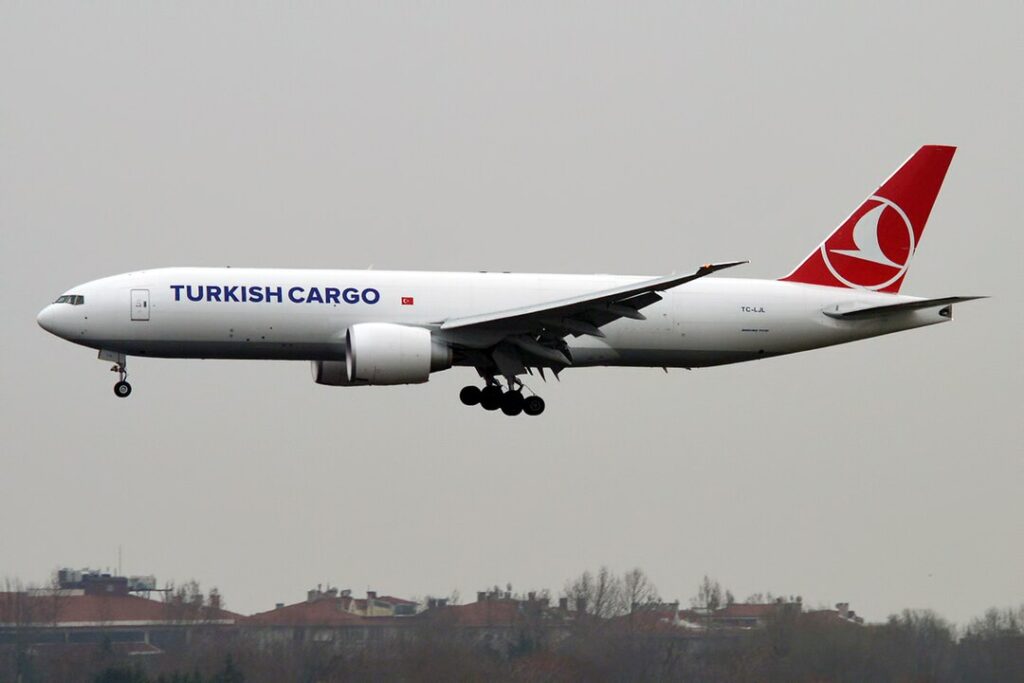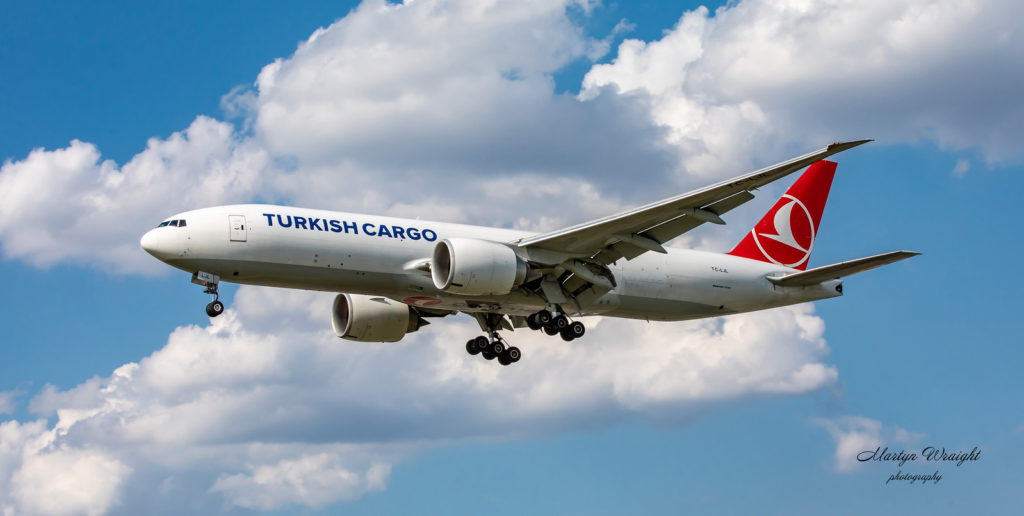ISTANBUL- According to Murat Seker, the Chief Financial Officer of Turkish Airlines (TK), the airline has intentions to streamline its dedicated cargo fleet with a focus on the Boeing 777-200F aircraft, as reported by Aviation Week.
As per the details provided by ch-aviation’s advanced fleet module, Turkish Airlines’ cargo fleet, which operates under the mainline Air Operator’s Certificate (AOC), currently comprises ten A330-200Fs and eight 777-200Fs.
Additionally, the airline engages in wet-leasing arrangements, utilizing one A310-300(F) from ULS Airlines Cargo (GO), two A330-200Fs from CMA CGM Air Cargo (2C), and one Boeing 747-400(BDSF) from AirACT (9T), all operating out of Istanbul Airport.

https://commons.wikimedia.org/w/index.php?curid=65937997
Turkish Airlines Boeing 777-8F
Seker clarified that Turkish Airlines has no intentions of pursuing the Boeing 777-8F aircraft for its cargo operations.
Amid the ongoing global deceleration, Turkish Airlines maintains a resolute commitment to its freight operations strategy.
Notably, the airline’s cargo revenues sustained a 44% decline during the second quarter of 2023 compared to the same period in 2022. Simultaneously, their contribution to the overall company revenues diminished from 26.9% to 12.5%.
This decline, primarily attributed to a worldwide excess supply and the prolonged effects of seismic events on their operations, which necessitated the reassignment of cargo capacity for humanitarian relief efforts, has been compounded by an augmented availability of maritime vessels.
Reduced containerized cargo prices further exacerbate the mismatch between supply and demand.
As a result, the competitive edge of air cargo in relation to maritime transport is becoming less pronounced, and the shift from sea to air that gained momentum during the pandemic has slowed considerably, as Murat Seker revealed in a recent investor conference call.

Drop in Cargo Yields
The airline also noted a 35% dip in cargo yields for the present year. However, they anticipate a moderation of this decline to approximately 25-30% during the latter half of the year.
Turkish Airlines remains dedicated to augmenting its door-to-door cargo services and is poised to embark on a pilot phase encompassing Turkey, the United States, the European Union, and the United Kingdom, scheduled to span until 2026.
Seker affirmed, “By the year 2028, we envision ourselves as a significant player in the domain of e-business,” underscoring the airline’s ambition for strategic growth within this sector.

Turkish Airlines Order Delays
Turkish Airlines (TK) has once again delayed deciding its extensive order for 600 new airplanes due to escalating problems related to engine production and quality concerns associated with certain recent models developed by Airbus and Boeing.
This potential deal, previously mentioned by Turkish Chairman Ahmet Bolat, is set to encompass approximately 400 narrowbody aircraft from the Airbus A320neo and Boeing 737 MAX families, in addition to around 200 widebody aircraft spanning the Airbus A350, Boeing 787, and 777-9 models.
With a total of 600 aircraft, this order could potentially become the largest single airplane order ever recorded, surpassing substantial recent agreements made by Air India (AI) and IndiGo (6E).
Stay tuned with us. Further, follow us on social media for the latest updates.
Join us on Telegram Group for the Latest Aviation Updates. Subsequently, follow us on Google News.

